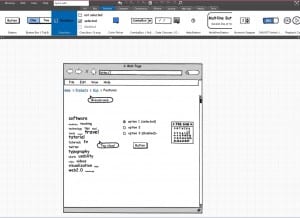Posted by Elif Varol | Posted in Library, Uncategorized | Posted on May 3, 2012
I was delighted to find out that I won a place at the EDGE conference at the beginning of March.
The programme was very interesting with speakers from diverse backgrounds including experts from technology and partner organisations as well as politicians. It was refreshing that there were speakers from non-library backgrounds who allowed me to look at our sector from a different angle.
I was very pleased to hear that despite severe budget cuts across the UK, public libraries in Edinburgh are going from strength to strength. Mark Turley– Director of Services for Communities, City of Edinburgh Council stated that libraries play huge part in economic growth and change the dynamic of the neighbourhood that they are in. This statement fitted in perfectly with the talk given by Amy Eshleman– Assistant Commissioner from Chicago Public Library. She explained that they use social capital as a way of developing communities. Amy mentioned a couple of projects that they have been developed at Chicago, one of which is YOUmedia that involves middle and high school students. It supports the idea that learning can happen anywhere. With this in mind, they went out of the library to art and music festivals and even to beach volley tournaments. In these events, one of the interesting ways to get young people interested in libraries was to allow them to ride a bike which powered a computer and gave them library cards in return.
YOUmedia promotes 21st century skills such as critical thinking, creativity, skill building and civil engagement. The activities were purposeful and in curriculum so that young people would do what appeal to them, such as designing games or blogging. This allowed them not only to be the consumer of the information but also to create it at the same time. Some other activities that were part of YOUmedia were to design and recreate a book jacket and to write music or a poem about a particular book. The project became such a success that young people were asked to design Lady Gaga’s Tour Bus for her foundation Born This Way.
Amy mentioned that they developed an online toolkit to measure the impact of the library services which is not just about circulation statistics. The toolkit will be available online soon.
One of the talks that I found very interesting was by Riccardo Marini-Urbanist which was about design, creativity, planning, and places. Riccardo concentrated on libraries as place making anchors. He strongly believes that we need to have places that we like to successfully engage the interest of people. How we present our service determines how people think about it therefore it is very important that we need to present it in a creative way which will enhance the experience of our service users. Riccardo mentioned Taylorism and Efficiency Movement which moved the focus away from happiness on to efficiency. This movement influenced our focus on financial equations in terms of efficiency rather than the creativity.
Judith St John talked about Idea Store, Tower Hamlets which was developed following public’s opinion about wanting to have more books and IT services. The Council wanted to move away from the negative opinion of their services as well as reaching people that were not usually library users. As a result of this, they went through a re-branding process where Idea Store was born. Their aim was to create an environment where people would “hang around with purpose”. Idea Store adopted a retail model which created a lot of resistance initially from the staff, who thought the traditional library concept of learning and reading would be destroyed. However the number of visitors going in to the library quadrupled and the level of criminality disappeared within 2 months of Idea Store opening.
The highlight of the conference was a demonstration of augmented reality by Lester Madden from Augmented Planet. This was my first experience of seeing a live demo of augmented reality- combining computer generated graphics with real world. I was, and I still am, fascinated by it. Lester mentioned that there are a number of services freely available that can help non-programmers develop applications. One of these is Junaio. I certainly want to investigate augmented reality further.
From the hospitality of the organising committee to the interesting and diverse talks, as well as networking opportunities, the conference has been a great experience. I am really grateful that I had the opportunity to attend such an event.

